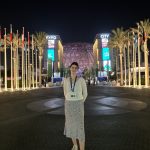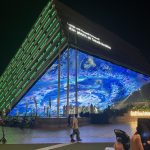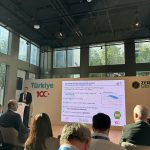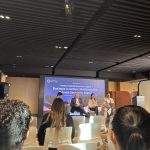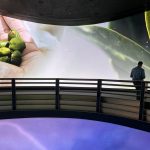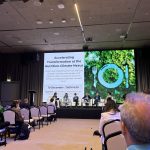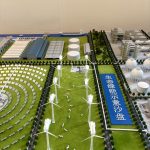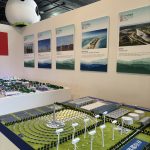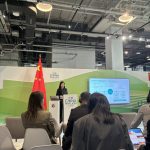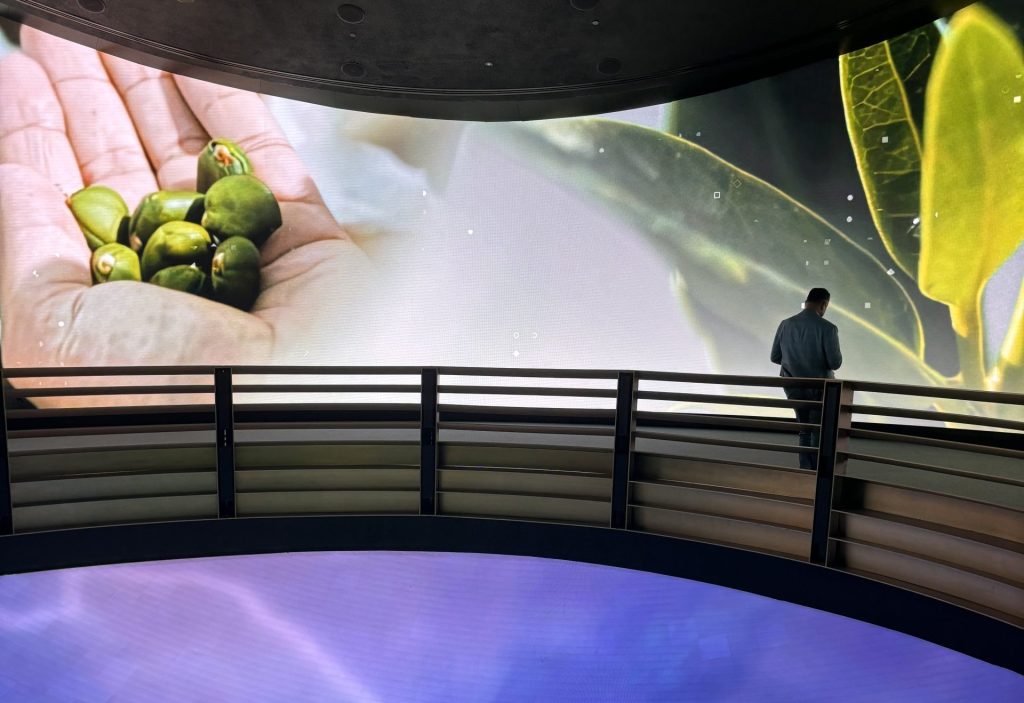
Report by: Zvezdana Božović, youth delegate of RES Foundation
The theme on Sunday, December 10th was Food, Agriculture and Water Day. In the morning, RES attended a presentation titled “Large Language Model Applications in Environment and Sustainability” at the China Pavilion presented by Ming Xu from Tsinghua University about their new TianGong AI large language model application for environment and sustainability. The application includes a ChatGPT-like chat model, which aims to leverage and build a knowledge base similar to that of a graduate student, PhD or even professor in environment and sustainability fields. The visit to the China pavilion was followed by a visit to the Saudi Green Initiative which explores the history of the development of green infrastructure in Saudi Arabia.
After that, RES attended a high-level panel titled “Accelerating transformation at the Nutrition-Climate Nexus”. The panel discussion, organized by the COP28 presidency, the Scaling Up Nutrition Movement (SUN), and the Global Alliance for Improved Nutrition (GAIN), offered multiple perspectives on the interconnectivity of food and climate. Some points underlined by the panelists is that climate change poses a significant threat to food production and nutrient density, highlighting the need to secure access to clean cooking for all and the important role social protection plays in just transition. As Mirey Atallah from UNEP noted, “The best way to secure food systems is to mitigate and abate GHG … We need to substantively change how and what we are producing”.
After that, RES attended an event organized by the Abu Dhabi Department of Energy titled “Energy Transition and Net Zero Pathways: How data, modelling and energy outlooks translate to real impact on the ground”. The panel focused on integrated energy models around the world and their impact on people and planet. More specifically, the linkages between data and policy, from numbers to real-world application were explored within an international context.
Then followed the brief panel “Business in Action: Mobilising the Private Sector for Water” at the Expo City Dubai Pavilion. The panel explored the rapidly developing concept of a water credits marketplace. One panelist highlighted that from a responsibility and access perspective, that both investors and customers in the energy sector are getting increasingly interested in the environmental implications of businesses. “We cannot forget that water is a human right”.
Lastly, we observed the final meeting and adoption of items on the New collective quantified goal on climate finance – CMA 10 (e) and Matters relating to the Adaptation Fund -CMP 7/CMA 10 (d).
December 11th was dedicated to final negotiations. RES took part at a side event in the morning organized jointly by the Official Youth Constituency of the UNFCCC (YOUNGO) and IFSA (International Forestry Students’ Association) titled “Bolstering Youth Climate Action on the Global North and Global South” with young panelists from different organisations. After the panel, we took part in a workshop discussion on climate education and partnerships, discussing what support can be provided from government and private sector level to youth engaged in the climate space. Support by way of funding and capacity-building was brought up multiple times as a suggestion. As the conference was coming to a close, pavilions were slowly closing up and side events and panels were fewer. We attended a brief presentation of the Turkish Emissions Trading System. Back in building B1 of the Blue Zone the negotiations were in full swing, and throughout the venue, representatives of civil society and observer constituencies were organizing joint actions to highlight the urgency of the points on the negotiators’ agenda.
December 12th was set to be the last day of the conference, but as has happened in previous years, there was no guarantee that this would be the case. Indeed, the negotiations continued deep into the night and until the morning of December 13th. The tension in the air on Tuesday was palpable, with last-minute actions taking place throughout the venue. One activist wearing a dugong costume held a poster saying “No more fossils” in the hallway of B1 where the negotiations took place. The final text that came out on Wednesday was adopted swiftly in the morning and with that, COP28 was officially over. While some criticized the First global stocktake for being too vague on many crucial points, some have also commended the fact that the text explicitly mentions transitioning away from fossil fuels. With Azerbaijan officially announced as the host of COP29, it remains to be seen how far we will get by the fall of 2024.

